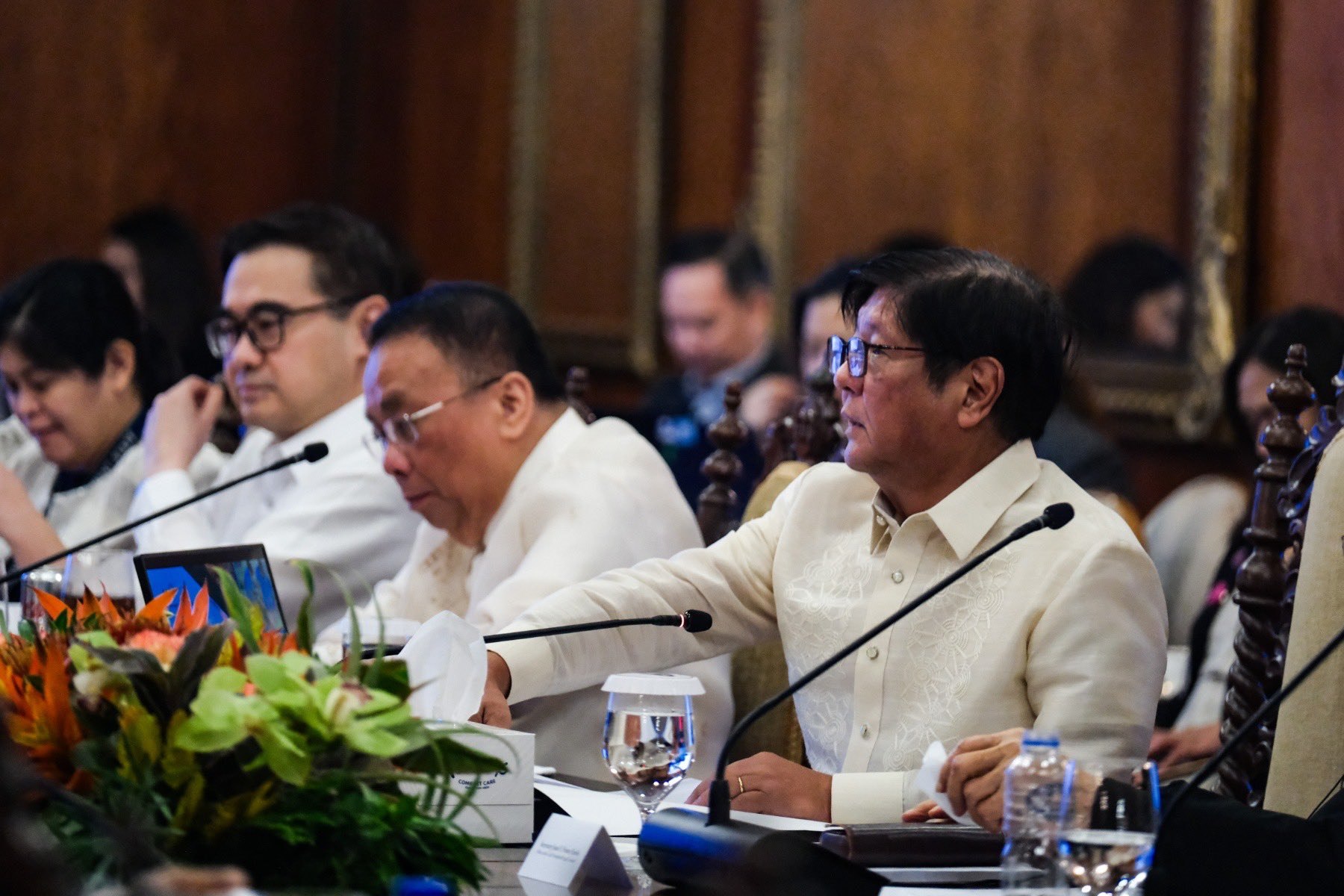All sides in the current political rift are clamoring to reclaim the mandate of the people in the aftermath of the midterm elections. In forcing his entire Cabinet to tender courtesy resignations, President Ferdinand Marcos Jr. claims to be heeding the mounting calls for change. But such actions are nothing more than smokes and mirrors, obscuring real intentions without heeding the people’s calls for accountability.
Marcos’s choices of Cabinet secretaries to retain undercut his purported narrative of recalibration toward the people’s will. His economic team remains intact, despite 79% of the population expressing distrust in their handling of inflation, according to a March Pulse Asia survey. For one, Finance Secretary Ralph Recto, whose digital VAT threatens to further choke the wallets of consumers, remains in Cabinet.
The midterm results all but foretold such a move from a cornered president scrambling to consolidate power. It comes after a stinging rebuke — confirming the distrust of 53% of the electorate, per the same survey. Like former President Gloria Arroyo before him, he is willing to sacrifice secretaries in an attempt to reverse his political fortunes.
Amid the loss of key Senate allies, Marcos also seeks to remobilize political power in key government positions. In the Cabinet, he is plucking out disloyal members such as Solicitor General Menado Guevarra, whom Malacañang has taken shots at for refusing to represent the government in the case against former President Rodrigo Duterte’s arrest by the International Criminal Court. In Congress, meanwhile, maneuvers are already underway to secure another term for House Speaker Martin Romualdez.
Desperation has conjured illusionary alliances that were previously unthinkable. Marcos has begun reaching out to the progressives, buoyed by their surprisingly strong showing in the midterm elections. While the administration has not openly declared a tactical alliance, their actions speak for themselves: Malacañang, for example, has welcomed the “genuine opposition,” supposedly the progressives, while condemning supposed obstructionists. Newly elected representatives Leila de Lima and Chel Diokno were immediately invited by Romualdez to serve as prosecutors in the vice president’s impeachment.
But if there is any lesson to be learned from the failure of the UniTeam alliance, it is that Marcos’s rhetoric of unity and alliance-building can never be trusted, especially when they are built on transactional relationships to further the political agenda of a few.
Congress, especially with the upcoming impeachment, will define the progressives of their fortunes in the 2028 elections. In staking their ground, they have to steer clear of Congress’s tainted reputation —one certainly not helped when senators blanketly support Marcos’s reshuffle without calling it out as a distraction, when representatives continue to insert bloated unprogrammed funds in the budget, and when legislators support Marcos’s suggestion to “observe” bicameral budget deliberations.
The best way forward for progressives is to cut through the smoke, amplify the people’s call, and shatter the mirrors of distraction: reject Marcos’s anti-people policies and hold Duterte accountable for her crimes.
The renewed third force status of the progressives means that for the first time in a while, they hold significant influence in Congress. Their prosecutorial role will allow them to keep the focus of the impeachment trial on the vice president’s misuse of confidential funds, regardless of the narrative that Duterte attempts to spin.
But public trust can only remain if they make no such tactical alliances with either of the Marcos or Duterte clans. In a way, Marcos is right that these times cannot be “business as usual.” If progressives lend credibility to his administration and give the president free rein over government institutions, his illusionary governance will only continue for the next three years. Worse, it risks bolstering Dutertes’ chances of taking back Malacañang in 2028.
The path for progressives becomes clear: hold both Marcos and Duterte to account. This begins with calling out budget anomalies in Congress. It must be complemented with a renewed push for a progressive economic and social agenda: raising the minimum wage to P1,200, removing excise taxes on fuels and other essential goods, supporting local farmers to boost food security, and halting the privatization of essential services. Not only will these policies uplift living standards for Filipinos, but they will also fulfill their mandate to the electorate that brought them into power in the first place.
If Congress fails to do so, then the mantle of demands for accountability will be taken up by the people. They, after all, have the power to hold officials accountable and ensure calls for economic justice prevails. ●
First published in the May 27, 2025, print edition of the Collegian.







